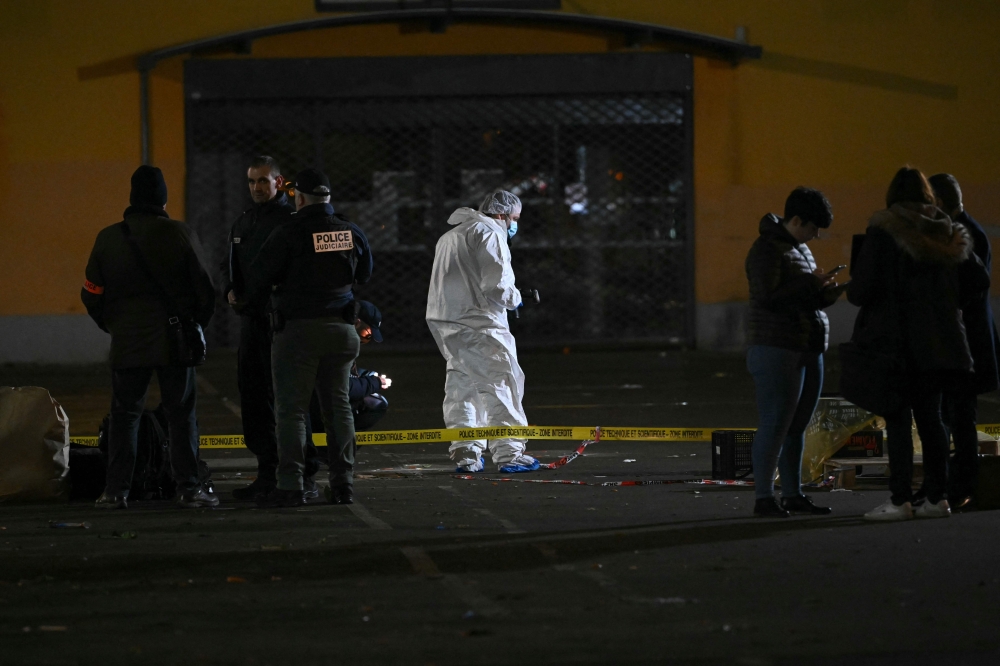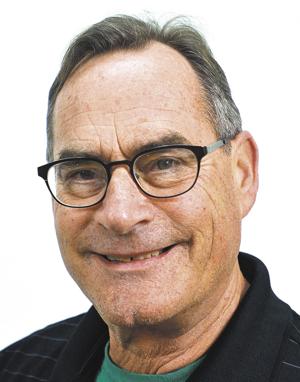
OTTAWA — Keep calm, Canada. And bring it on. U.
S. President Donald Trump’s tariff threat has galvanized a political shift in Canada, sparking not just impassioned public displays of patriotism in the True North but also forcing Liberals and Conservatives to reframe their electoral pitches with a strong dose of nationalism as they seek to replace Justin Trudeau. Suddenly it’s less about tackling the high cost of living and more about stamping Canada First on their promises, especially in the days since Trump put in writing his 25 per cent tariff plan with its 10 per cent hit on oil.

Although there is a temporary reprieve, there is no pause in the nation’s angst about what might still come. Weeks ago, Conservative Leader Pierre Poilievre became the first to adopt “Canada First” as a political marketing slogan to brand his revised attack on the Liberals in speeches and online videos that many of them viewed as mimicking Trump’s America First rhetoric, and not in a good way. Under that umbrella, Poilievre has tucked a range of promises from reduced interprovincial trade barriers to a bolstered border agency with more agents and surveillance equipment, and now proposed mandatory life sentences in prison for fentanyl traffickers.
The Conservative leader had been laser-focused on demands for a “carbon tax election” but he’d also struggled in the past month to find political footing once Trudeau’s would-be Liberal successors ditched the carbon levy. In the past few days, Poilievre has pivoted to focus on the need for a “change election,” blasting his rivals as global elitists, and touting himself as the only one strong enough to stand up to Trump. “The radical Trudeau-Carney experiment with open borders and post-national globalism has not only divided and weakened our country’s sense of identity, it has endangered our people,” he said Wednesday.
“When I’m prime minister, that radical, borderless globalist ideology pushed by the Trudeau-Carney Liberals will end and we will have a prime minister that seals the border, protects our people and puts Canada first.” The candidates running to lead the Liberals and defeat Poilievre may have dismissed his Trumpian spin at the outset, but they have been quick to make a tonal shift toward a more chest-thumping pride-in-Canada nationalism. It’s not just former MP Ruby Dhalla, the long-shot candidate who posted on Elon Musk’s “X” platform an inflammatory, Trump-style pledge to “deport every illegal immigrant living in Canada” with no details, although none of the others have taken up that rhetoric.
The Liberals aiming to take the prime minister’s seat lined up behind Trudeau’s retaliation plan in a joint statement they issued on Sunday. But by the next day, they were trying to outdo Trudeau and each other as proud nationalists, particularly front-runners Chrystia Freeland and Mark Carney. Freeland, the former finance minister whose resignation set Trudeau’s departure in motion , wrote a scathing column in the Economist on Tuesday about the U.
S. president — one she did not run by the Prime Minister’s Office or the team dealing with Trump-world on the ground in Washington. Trump’s tariffs and warning to rip up the Canada-U.
S.-Mexico free trade deal set a “truly dangerous” precedent, Freeland wrote, and “worse” are his offers to lift the tariff threat in exchange for annexation — something the Canadian government has dismissed as unworthy of serious debate. Freeland followed up Wednesday by packaging specific policy pledges in a distinctly pro-Canada framing, saying Trump has “declared a trade war on Canada.
” “While Canada has secured a win with a 30-day pause on tariffs, in the face of Donald Trump’s economic nationalism, we must take bold action to make Canada’s economy stronger and more resilient,” Freeland wrote. Freeland listed 10 policies that she said would bolster “our sovereignty” by investing in Canadian manufacturing, business and jobs, saying they are just a first step. They came within a couple of hours of Carney declaring in Windsor that he would accelerate Canada’s defence spending — long an irritant to Trump — to reach NATO’s target of two per cent of GDP earlier than Trudeau and Freeland had forecast, by 2030, instead of 2032, before launching into his own appeal to Canadian pride.
Like Freeland, Carney says the “old rules-based order is finished” with Trump’s tariff threats. Canadians face a very different world in which “Americans have become more our neighbours than our good friends,” Carney said, emphasizing as he has since announcing his candidacy the need to boost Canada’s economic growth. When it comes to responding to the American president, Carney, Freeland and Poilievre have all vowed to eliminate interprovincial trade barriers as a way for Canada to wean itself off its dependence on trade with the U.
S. Where they differ at this point is on specifics. Poilievre pledges to streamline cross-country trucking, and to fast-track certification of skilled trades and health-care workers.
Freeland’s platform says she may withhold major federal transfers of money from provinces to get premiers to drop trade barriers in agriculture, transportation and alcohol within 30 days, and to force them to streamline foreign credential certification of skilled trades and health workers. She would make trade schools “free” and implement “Buy Canadian” policies to restrict American companies from federal procurement and government-funded programs — a move that could potentially violate free trade rules. Freeland would also “prioritize Canadian companies and workers” in all federal contracting for goods and services, saying she’d choose “Telesat over (Elon Musk’s) Starlink, D2L over Google, and Bombardier over Boeing.
” And she said she would “build up made-in-Canada defence supply chains.” Freeland, Carney and Poilievre all talk about removing red tape and the regulatory burden on resource developers. Carney and Freeland both talk about redirecting Canada’s defence dollars to boost manufacturing and technologies here, with Freeland pledging to “spur” Canadian manufacturing and technologies in artificial intelligence and quantum computing, rare earth minerals, drones, icebreakers and ships.
Freeland and Poilievre both say they would convene premiers within 30 days to expedite action on interprovincial trade barriers. Carney has been less specific in how he’d wield economic and fiscal power to combat Trump, but promises an unspecified middle-class tax cut in addition to ditching the changes to the capital gains tax, which Freeland and Poilievre have also done. But thematically, the former central banker is all in on the pro-Canada push right now.
He cast his revamped carbon price plan for industrial emitters as change that will help Canadian companies embrace opportunities to “leapfrog their American competitors in global markets.” Carney says Canada has to find new friends and “essential trading partners,” and turn to those who “share our values” like the U.K.
, the European Union and “leaders in Asia.” Time for finding new friends, however, is running short, with fewer than four weeks before Trump decides whether to proceed with his plan to penalize Canada with tariffs. All the nationalistic fervour in the world won’t stop that clock.
.















